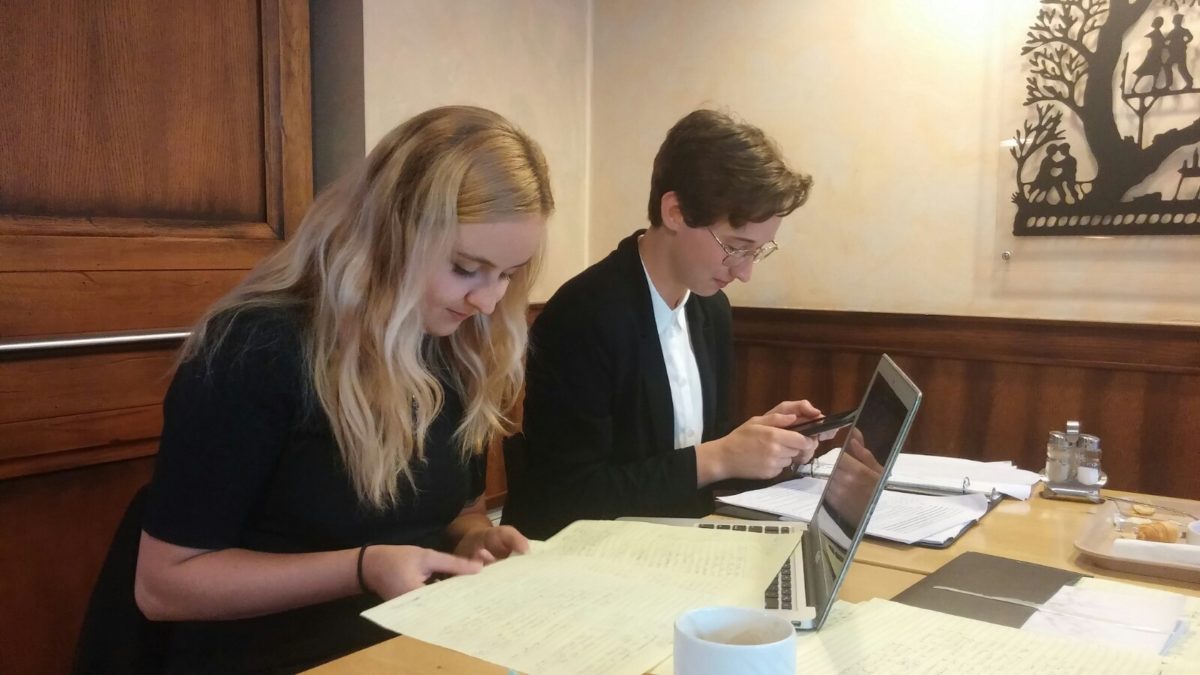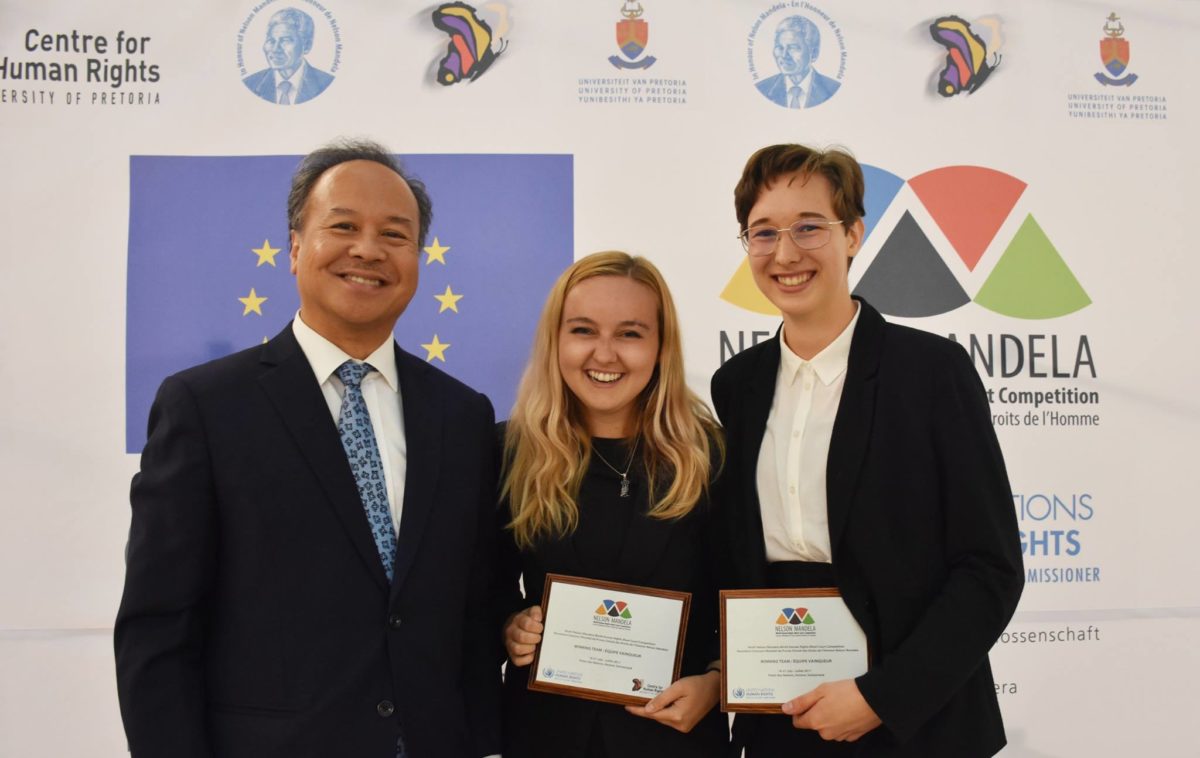The St. Thomas University moot court team won the Nelson Mandela World Moot Court Competition in Geneva, Switzerland on July 21.
Represented by fourth-year student Navy Vezina and third-year Abbie LeBlanc, STU was the first Canadian team to participate in the nine-year-old competition.
To qualify to participate in the competition teams had to prepare a written case brief. Six members of the St. Thomas moot court team — Emily Williams, Emma Walsh, Camille Xavier and Brianna Matchett, along with Vezina and LeBlanc — submitted a brief, not anticipating to be chosen.
“When we initially started doing the written part of the competition, we didn’t even expect that we were going to qualify at all because we would be competing against people doing masters of law program,” LeBlanc said. “We were just doing it for fun.”
At the competition, the best five teams from each of the United Nations regions had to argue both sides of a hypothetical case before a panel of human rights experts.
The STU pair won its first round against Yale Law School and qualified for finals by scoring 0.03 points higher than University of Oxford.
The hypothetical cases for the competition focused on three issues: violations of the right to life, protections for displaced people, and government discrimination.
“We tried to be really strategic. Part of the competition is about how creative your arguments are and your persuasiveness,” Vezina said.
She said of all the teams she saw compete, she thinks STU’s arguments were the most creative and challenging arguments to make.
“It was a big risk to make such creative arguments,” she said. “For example, for the right to life, I was the only one who used [Maritime Labour Convention] and piracy prevention law as an argument for why it’s important to protect people on the high seas … which helped us a lot because then teams have trouble responding to your arguments.”
On the international podium
After finding out St. Thomas qualified for the competition, LeBlanc and Vezina were chosen to

represent the team and compete based on availability.
The three-day competition began on July 18 and consisted of four preliminary rounds and one final round.
In the final round, Vezina and LeBlanc were pitted against a team from the University of Buenos Aires, Argentina.
Justice Albie Sachs, a retired judge from the South African Constitutional Court and close friend of Nelson Mandela, and Justice Raul Pangalangan from the International Criminal Court, were among a number of judges who oversaw the competition.
Human rights professor Amada DiPaolo founded the moot court class at STU three years ago. Since then, the success of the team has been considerable, with four teams in the past two years making the national competitions held in the United States.
DiPaolo heard about the Nelson Mandela World Moot Court Competition from an American Moot Court Association coach and invited her students to submit the written brief required to participate in the oral competition.
DiPaolo said the competition is designed for law students, but undergraduate students are eligible as well.
Small but mighty
Vezina said she is honoured to have been able to be a part of the competition. She said the feedback from the judges was encouraging.
“I’m not someone who has ever considered working in the human rights field. I always wanted to do law, but I always thought I would do constitutional or domestic-style law,” she said.
“But they [the judges] definitely made a compelling argument as to why I should do human rights law.”
LeBlanc agreed and said the moment they walked into the room where the United Nations human rights council meets for the final round will stick with her for a long time.
“When you look up the ceiling has this mural on it that’s painted so that wherever you are in the room you see a different set of colors, as kind of a statement on perspective,” she said.
“When you walk in it’s kind of nauseating to look at because of the way it’s curved and it has things hanging off it … I’m going to remember that.”
The future of the St. Thomas’ moot court team looks big and bright, according to DiPaolo. Last year the team was made up of 16 students, with 30 the expected number for this coming semester.
“As students enter more and more competitions that showcase the skills of oral advocacy, it will elevate the extracurricular activities that STU has to offer,” she said.
“I’m biased, but I think moot court is one of the best experiential learning activities students can do.”
As part of their prize for winning the competition, both Vezina and LeBlanc have received scholarships to attend a human rights implementation academic program next summer at the University of Lucerne in Switzlerland.
“There is a moot court competition at the end of that program that you have to compete in, so it looks like we’ll be doing moot court for a while,” Vezina said.
First Canadian team to compete and World Champs!! Hey @JustinTrudeau can't we get a woot woot for World Moot?? https://t.co/AfL6dRpQxA
— STU's Human Rights Department (@STUHMRTDept) July 21, 2017

